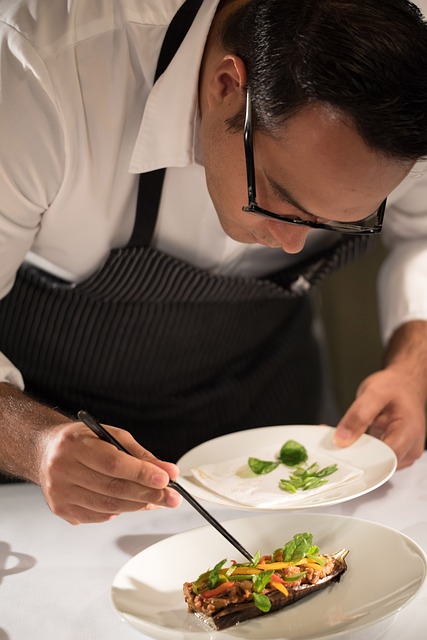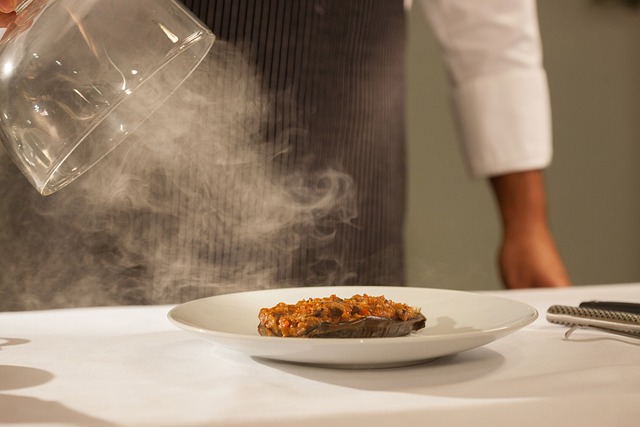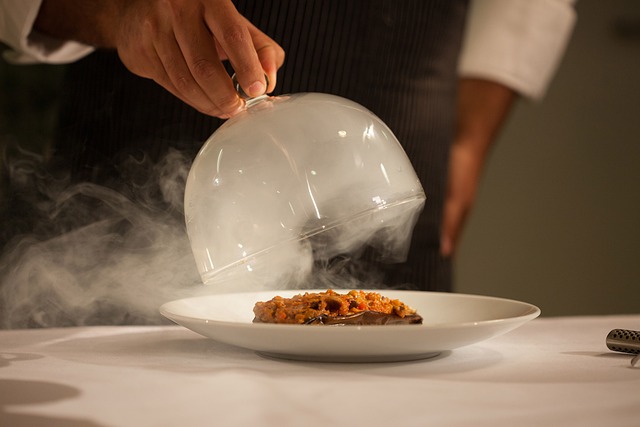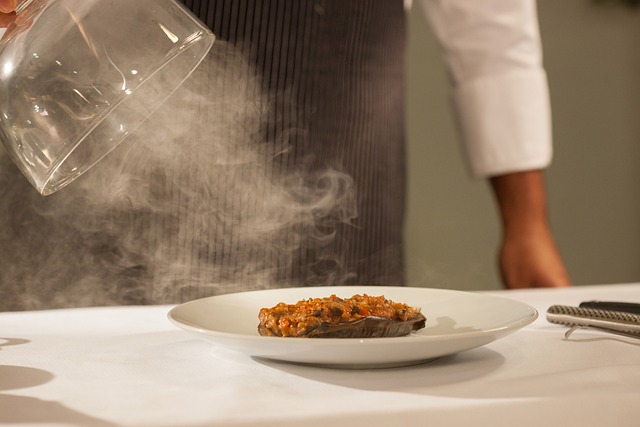In this friendly discussion, you’ll discover what sets Michelin-starred restaurants apart from other eateries. You’ll gain insight into the strict criteria these restaurants meet, the unique dining experiences they offer, and their unparalleled commitment to quality and innovation. Get ready to whet your appetite for knowledge!

This image is property of pixabay.com.
Understanding the Michelin Star Rating System
Origins of the Michelin Star System
The Michelin Star system was initially established in the early 20th century by French tire company, Michelin. This system was designed as a guide to help travelers discover great places to eat while on the road. With time, it has evolved into one of the most prestigious food rankings globally, making it a mark of distinction for world-class dining establishments.
Process of Awarding Michelin Stars
The acquisition of a Michelin star is far from easy. Michelin employs anonymous reviewers, often referred to as inspectors, who visit the restaurants undercover. These inspectors evaluate the restaurants based mainly on the quality of the food, the chef’s technique, and the consistency of the dishes. Customer service, decor, and ambiance, though taken into consideration, play a secondary role.
Meaning of One, Two, and Three Michelin Stars
Each Michelin star carries its own weight of significance. One star denotes a very good restaurant, indicating a high-quality dining experience. Two stars are meant for excellent cuisine that is worth a detour. Lastly, three stars imply exceptional cuisine worth a special journey, embodying culinary perfection in all aspects.
Characteristics of Michelin-Starred Restaurants
Extraordinary Culinary Skill and Innovation
World-class chefs run Michelin-starred restaurants, who are not afraid to push culinary boundaries while honoring the classics. They demonstrate an exceptional level of creativity and innovation, continually evolving their menus with unexpected pairings and preparation methods.
High-Quality Ingredients and Perfect Preparation
Only the highest quality ingredients find their way to a Michelin-starred kitchen. These restaurants source locally grown, seasonal produce to ensure freshness. Every meal is meticulously prepared with a keen eye on detail, taste, and presentation.
Outstanding Service and Attention to Detail
At a Michelin-starred establishment, you can expect excellent service bestowed with warmth, attentiveness, and professionalism. The staff’s skillful ability to anticipate your needs, combine with their extensive knowledge about the menu contributes to a flawless dining experience.
Unique and Memorable Dining Experience
Such restaurants aim to provide an unforgettable dining experience. The unique ambiance, fine decor, and the overall experience transcend beyond a typical meal, creating lasting memories.

This image is property of pixabay.com.
Requirements for Earning a Michelin Star
Consistency in Food Quality and Taste
Maintaining consistency in the quality and taste is a prerequisite. Michelin inspectors revisit the restaurants multiple times, unannounced, solely to evaluate the consistency over time and across all dishes.
Excellent Customer Service
Professional and high-quality service is another requirement. The staff should be well-versed with the menu offerings and must be capable of guiding diners professionally.
Exceptional Personal Touch in Food and Ambiance
To score a star, the restaurant should provide a unique dining experience, and that often comes from the personal touches infused into the dishes and the ambiance by the chef and the staff.
Chef’s Interpretation and Mastery of Their Cuisine
A chef’s unique interpretation of a dish and mastery of their cuisine plays an instrumental role. It’s about presenting traditional dishes with a personal twist and taste that elevates them to another level.
The Significance of the Michelin Star for Restaurants
Prestige and Recognition
A Michelin star brings unparalleled prestige and global recognition to a restaurant. It is considered one of the highest honors in the gastronomic world, bringing along elevated status and respect.
Increased Business and Career Opportunities
A Michelin-star could potentially lead to increased business, attracting diners from all over the world. It also opens up new career opportunities for the chefs and the staff working at the restaurant.
Elevated Consumer Trust
The star assures patrons of a high-quality dining experience and gives them confidence in their restaurant choice, thus building a higher level of trust amongst consumers.

This image is property of pixabay.com.
Maintaining Michelin Star Status
Ensuring Consistency and High Standards
Once awarded, the journey doesn’t end for the restaurant. They must maintain the quality and consistency to retain the star. It requires continuous hard work and stringent quality checks.
Continuous Culinary Innovation
Staying relevant and continually thrilling the palates of diners comes next. Restaurants should keep introducing innovative dishes and enhancing culinary skills.
Focus on Customer Satisfaction
Satisfying customer’s expectations and delivering a memorable experience are essential factors in retaining the star.
Challenges Associated with Michelin Star Status
Immense Pressure to Retain the Star
Receiving a Michelin star brings enormous pressure for the restaurants to maintain it. The fear of losing the star could lead to overwhelming stress on the restaurant team.
Balancing Business Interests and Culinary Creativity
Restaurants often struggle to balance creativity and the needs of the business, particularly in managing operational costs without compromising on quality.
High Operating Costs
Michelin-starred restaurants face high operating costs primarily due to sourcing high-quality ingredients, providing exceptional service, and maintaining a lavish ambiance.
Comparison between Michelin-Starred Restaurants and Other Dining Establishments
Differences in Food Preparation and Presentation
While all restaurants strive to prepare delicious food, Michelin-starred establishments go above and beyond in perfecting the art of preparation and presentation.
Variation in Customer Service Quality
The quality of customer service significantly differs. Michelin-starred restaurants provide an elevated level of service that ensures a flawless experience.
Disparity in Pricing
Given the quality of ingredients, service, and experience, Michelin-starred restaurants often demand higher prices compared to conventional establishments.
Debate around the Michelin Star System
Criticisms and Controversies
The system has been criticised for being overly focused on high-end dining, and some argue that it’s biased towards certain styles of cuisine or locations.
Arguments in Favor of the Michelin Star System
Despite the criticisms, the Michelin Star system has helped elevate culinary standards globally and has guided countless food lovers to great culinary experiences.
Case Studies of Michelin-Starred Restaurants
Success Stories and Challenges
Each Michelin-starred restaurant has its own unique journey filled with both triumphs and challenges, reflecting the hard work and dedication put into achieving this honor.
Restaurants That Declined the Michelin Star
Interestingly, few restaurants have declined the status, citing reasons like the immense pressure it brings or the desire to focus on their culinary creativity without restrictions.
Conclusion
Impact of Michelin Stars on the Culinary World
The Michelin Star system has undeniably shaped gastronomy worldwide, pushing chefs and restaurants towards culinary excellence.
Future of Michelin-Starred Restaurants
As the gastronomy world evolves, Michelin-starred restaurants will continue to redefine dining experiences, pushing boundaries, and setting new standards. Without a doubt, the journey will be as exciting as the destination.










